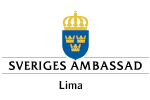 Just before the traditional military parade of the 29th of July began, an apparently secondary event took place: approximately one hundred men, women, senior citizens and children clashed with the police and military to force their way into the stands set up at the edge of Brazil Avenue to watch the parade.
Just before the traditional military parade of the 29th of July began, an apparently secondary event took place: approximately one hundred men, women, senior citizens and children clashed with the police and military to force their way into the stands set up at the edge of Brazil Avenue to watch the parade.
The police were vastly outnumbered by the tumult of people, some of whom even crawled under the stands to take seats set aside in advance for guests, according to what criteria or sponsorship who knows. One is struck by the contrast between the order and solemnity of the military parade with the chaos of the informal kerfuffle that seemed to say: "I do not care that the authority is here to signal the boundary between my desire and the law; I will be part of this parade of Peruvian nationalism, even if I haven’t been invited”. You simply can’t get a better analogy of the relationship between State and citizens in our society.
On the other hand, the optimism recorded in surveys made in the country’s largest cities regarding Peru’s walk along the path of development is evident and contagious, which is quite surprising. Some of the factors producing this state of mind include: the unusual experience of a growing national identity, the rise of a new and thriving middle class that has injected entrepreneurship and creativity into the country, the insignia and bastions of a sense of belonging: the notion of Peru as a country rich in diversity, Machu Picchu as one of the wonders of the world, history telling us that we were great, everyone’s pride in Peruvian cuisine, macroeconomic stability providing a secure foundation from which people can make plans for the future, the experience of being interconnected with others that the Internet or cell phones offer as part of the phenomenon of globalization, the feeling of victory in the face of an international financial crisis, public and private works that give the perception that our cities are under construction, that something important is in the making. Could it be that the self-defeating image of Peru as a beggar sitting on a bench made of gold is finally beginning to fade from our collective unconscious?
To answer that question is like trying to catch a glimpse of the end of a movie when it is just beginning. It would be better to ask ourselves, knowing that optimism is a fleeting state of mind and defeatism a self-fulfilling prophecy: How do we understand this mix of optimism for the future and the chaotic everyday experience of informality, when on first impression they are like oil and water?
The Other Path by Hernando de Soto (2002:50), published in the mid-eighties in the middle of the destabilizing acts of the Shining Path (Sendero Luminoso) and in the face of a centrist, corrupt and ineffective State, described the relationship among informals and their relationship with the establishment as follows: "Thus, it was, that in order to survive, the migrants became informals. If they were to live, trade, manufacture, transport, or even consume, the cities' new inhabitants had to do so illegally … informal activities burgeon when the legal system imposes rules …, does not honor the expectations, choices, and preferences of those whom it does not admit within its framework ...and when the state does not have sufficient coercive authority.”
In other words, the problem of street vendors in the eighties and nineties or taxi drivers at present was or is not a problem of individuals with antisocial traits who don’t give a damn about authority; it is a problem of the Peruvian State –and society as a whole– that does not include in their regular channels the vast portion of the Peruvian population who in order to survive become informal. The great achievement of the migrant population is not just having survived a persecutive and discriminatory State without falling prey to terrorism (even though the psycho-social conditions were ripe for it), but also having produced their own system of (“extralegal”) norms, work, employment and wealth. In fact, estimates indicate that today this sector comprises 55% of the EAP and that at least 35% of GDP is attributed to “informal” transactions.
We may or may not agree with neoliberal prescriptions, but what Hernando de Soto established and picked up from the new residents of Peru’s big cities is that the spaces for inclusion and representation abandoned by the Peruvian State were/are claimed by the poor who, when faced with the absence of opportunities in the system, created their own rules of the game. More than the proletariat or followers of Syndicalism, migrants became a new social and business class, willing to be incorporated into the formal system as long as it was more effective and fair.
Decades later, we are witnessing another crucial moment of social relations underway in which the two dimensions of Peru –the formal and informal– can finally look the other in the eye without necessarily excluding itself, each acknowledging the other, if only in an incipient and not altogether conflict-free way. Let us remember the analogy we began with: the crowds forcing their way into the stands at the Military Parade feeling that they had every right in the world to participate, not in the street, but in the VIP stands, as San Martín would say, "by the justice of their cause that God defends.”
All of us have the capacity to continue depolarizing these two sides of the country: on the one hand, we can continue to open channels that acknowledge and formalize the population who, through their own means and initiatives, survived the traditional, unfair, and negligent State. And on the other hand, we can deepen the reform of State institutions to make them more democratic, inclusive and efficient in administering public policy based on the respect and protection of people’s freedom and dignity.
In the process of bridging the formal-informal divide, where Peru’s national identity is being reformulated, a fundamental element needs to be taken into account: restoring the importance of the law and the system of justice that dispenses it. The bottleneck of our human development as a society lies precisely in the relationship of the Peruvian citizen with the law.
The law, far from being a dead letter or “pole vaulted over” must become a constant presence - protective, sustaining and sanctioning - within individuals and social relations. The law must be established through regulated, fair and consistent sanctions, so that the subjectivity of a group of people develops without mechanisms that distort social reality and so that the capabilities to cope with problems do not take the psychopathic way out by breaking the bonds of solidarity ("As long as it doesn’t happen to me, I'm fine, I don’t give a damn what happens to anybody else, let him deal with it”), the joys of the transgressor ("I break the rules, and I always come out on top, I take advantage of the situation"), taking justice into one’s own hands ("You have to burn this thief because the police aren’t doing anything"), etc.
It is essential that once a misdemeanor or felony is committed, punishment is the consequence. A lack of punishment in the face of breaking the law causes distrust and insecurity among people regarding the social system; it is as if nothing had happened, with nobody being responsible and no victims. The foundation of the democratic social contract is attacked, and it looks like a mere personal anecdote. This is why the example, probity and vigilance of authority figures, why transparency as a key principle, the formation of democratic values among citizens, and the dismantling of authoritarian models in the minds of individuals and groups for resolving public issues are all key challenges to address and tackle.
Only then can informality –characterized by the execution of thieves or predators by mobs sick of a justice system that when not corrupt is incompetent or invisible– begin making the transition to the watchful but confident expectations of citizens who know that the formal justice system is there to do its work. A difficult goal that needs to be addressed in a spirit devoid of empty triumphalism, of intolerance toward differences, a goal that must be faced with the spirit of a good craftsman who knows that his customers will return in search of a job well done. And human development in our country, like good craftsmen, must continue spinning thread from miscellaneous scraps and shreds for this huge loom we call Peru.
Link to original version in Spanish


